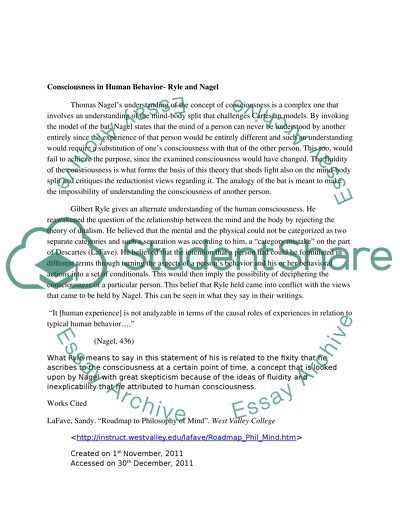Cite this document
(“Consciosness in Human Behavior - Ryle and Nagel Assignment”, n.d.)
Retrieved from https://studentshare.org/human-resources/1394197-essay-questions
Retrieved from https://studentshare.org/human-resources/1394197-essay-questions
(Consciosness in Human Behavior - Ryle and Nagel Assignment)
https://studentshare.org/human-resources/1394197-essay-questions.
https://studentshare.org/human-resources/1394197-essay-questions.
“Consciosness in Human Behavior - Ryle and Nagel Assignment”, n.d. https://studentshare.org/human-resources/1394197-essay-questions.


